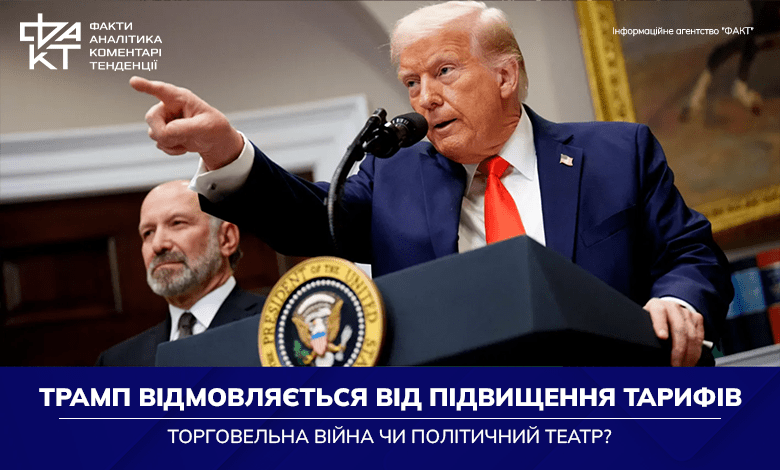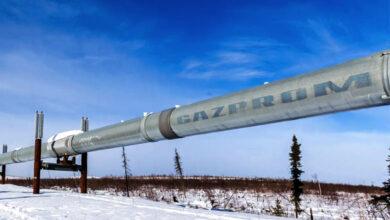Markets are grateful, allies are not: the USA is lifting tariffs but losing trust

The world economy is breathing a sigh of relief today: US President Donald Trump unexpectedly changed course and announced a halt to the escalation of the trade war. Instead of harsh country-specific tariffs, the White House introduced a flat 10% rate for all trading partners except China. For Beijing, the rules of the game have become even tougher: the new tariff of 125% takes effect immediately. In response, China announced mirror tariffs of 84% and issued a warning to its citizens against travel to the US.
Despite the nervous week in the financial markets, the White House assures: all this is part of the “strategy”. In Europe, the news of easing tensions was greeted with optimism, with European stock markets opening sharply higher, with the Stoxx 600 index jumping more than 7%, while the banking, auto and healthcare sectors showed even better performance.
The head of the European Commission, Ursula von der Leyen, called Trump’s decision “an important step towards stabilizing the global economy.” She emphasized that clear and predictable conditions are critical for trade and supply chains to function. “Tariffs are taxes that hit businesses and consumers“, she reminded again called to the agreement on zero tariffs between the EU and the USA.
The change of course was also welcomed in Poland, which, as a member of the EU, was supposed to be subject to 20% customs duties. Minister of Finance Andrzej Domansky called the cancellation of tariffs “the first right step” and called for “less emotion, more focus on economic growth”.
On the other side of the planet — in New Zealand — Prime Minister Christopher Lacson gave a speech in defense of free trade: “This is something worth fighting for“, he emphasized, announcing the intensification of negotiations with partners in the EU, Ireland, Vietnam, Malaysia, Singapore and the Philippines.
Meanwhile, ASEAN — an association of ten Southeast Asian countries — has refrained from retaliating. They stated that they would not resort to trade retaliation, but sought to “frank and constructive dialogue” with Washington.
The world, which in recent days froze in anticipation of a new wave of protectionism, has now received a temporary respite. But whether this “trade pause” will last long is a big question.
Europe: grateful, but no longer trusting
European Commission President Ursula von der Leyen welcomed Donald Trump’s decision to suspend mirror tariffs for 90 days, but at the same time made it clear that the European Union no longer sees the US as its main trading partner.
In a statement published by X social networks, she emphasized that Europe is focusing on diversifying trade ties and is actively engaged in dialogue with countries that together account for 87% of world trade. “We seek partnerships with those who share our values — the free flow of goods, services and ideas.”, — von der Leyen wrote.
Despite the temporary “respite” that Trump announced after the sharp reaction of the markets and the collapse of the indices, von der Leyen emphasized: the crisis has clearly shown that the EU’s internal market is the main pillar of stability and endurance. That is why, according to her, the European Commission will continue its work on eliminating trade barriers within the Union itself.
“My team and I are working day and night to protect European consumers, workers and businesses. And I am sure: we, Europeans, will come out of this crisis stronger”, she said.
We will remind you that earlier Trump imposed a 20% tariff on European goods – 10% of the basic fee plus another 10% of the so-called mirror duty, which he tried to “respond” to allegedly unfair trade barriers on the part of the EU.
Similar tariffs have been applied to dozens of US trading partners around the world, sparking panic in stock markets and talk of another recession.
The EU, for its part, even before the announced “pause” approved a plan for a mirror response to American tariffs on steel and aluminum. The striking “response” of Brussels should include a wide list of American goods — from industrial to agricultural and consumer goods, and the European Union is ready to introduce its tariffs as early as mid-April. Whether the 90-day temporary truce will change anything is still unclear.
It is interesting that previously von der Leyen proposed to the USA to agree on the mutual cancellation of tariffs on industrial goods, but Trump rejected her initiative, calling it “insufficient”.
Thus, even if the current “reset” will give both sides space for negotiations, the strategic vector of the European Union has already been outlined: less dependence on the US – more global multi-vector.
Who made money on the trading “swing”? Adam Schiff demands an investigation
Democratic Senator Adam Schiff urged The U.S. Congress will immediately begin an investigation into who in Donald Trump’s administration knew in advance about the president’s plans for tariffs — and whether anyone close to the White House took advantage of the sharp fluctuations in the market to enrich themselves.
“I think Congress should investigate, – said Schiff. — We will demand a response from the administration. They are likely to be evasive, especially if corruption schemes involving insider trading have taken place. But they will not be able to hide the truth for a long time. We know who is part of this administration.”
According to the senator, he is already preparing an official appeal to the White House with a demand to reveal who was informed in advance about the president’s next tariff reversal.
“And the main question: has anyone made a profit from it? Schiff emphasized. — People in the Trump administration have too much room for insider play. And believe me, they would not hesitate to use them for a second. We will try to find out.”
China out of the game: 125% and devaluation of the yuan
Yuan exchange rate fell down to the lowest level in 17 years after US President Donald Trump formally excluded China from a 90-day freeze on mirror tariffs and immediately raised tariffs on Chinese goods to a shocking 125%.
Trump said Beijing was not subject to a temporary “truce” because, he said, China was showing “a lack of respect for global markets.” “This duty takes effect immediately“, he emphasized.
On your platform Truth Social he published even harsher wording: “I hope China will soon understand: the days when it was possible to rip off the US and other countries with impunity are over. This is no longer acceptable and we will not tolerate it.”
Such a statement became another signal of the escalation of the trade conflict between the world’s two largest economies. Instead of the expected dialogue, there is another wave of economic pressure, which has already caused panic in the currency market: the Chinese yuan has sharply depreciated, investors are looking for safe assets, and Asian financial markets are reacting with a fall.
Analysts warn: a sharp increase in tariffs up to 125% could not only harm Chinese exports, but also stir up a new global wave of inflation. As the world economy struggles to recover from earlier shocks, Washington and Beijing are once again on a collision course—with all the attendant consequences for global supply chains and financial stability.
This development is just beginning, so the world will be closely watching the next steps of both the White House and the Chinese government.
Contingency or Speculation: What’s Behind Donald Trump’s ‘America’s Liberation Day’?
The unexpected easing of policy caused relief among US allies and investors, but also prompted the natural question: What was it?
Was it a manifestation of Trump’s trademark unpredictability, or a sign of panic before the collapse of the markets that could destroy his ratings and the chances of Republicans in the congressional elections? Or maybe cold-blooded financial speculation? On the eve of his speech, the US president publicly called for “buying”, that is, buying stocks on the decline. And within a few hours the market went up.
All this reduces confidence in decision-making mechanisms in Washington. One gets the impression that the head of state acts as a developer or trader, and not as the leader of the world’s most powerful economy. His decisions, dictated either by the interests of personal enrichment or by a chaotic response to market fluctuations, can have far-reaching consequences.
The most dangerous thing is the loss of confidence in the US as a serious prospective player. If global partners can no longer rely on the stability of American politics, this opens up space for players like Russia and China. The rise in oil prices after Trump’s announcements is already changing the strategies of states waging or preparing for wars.
Politics is not a short-term stock market game. It is responsibility for the consequences of decisions that can affect global stability for years. And when these decisions are made for hype, stock gains, or political effect, we all become hostages to someone’s political show.





